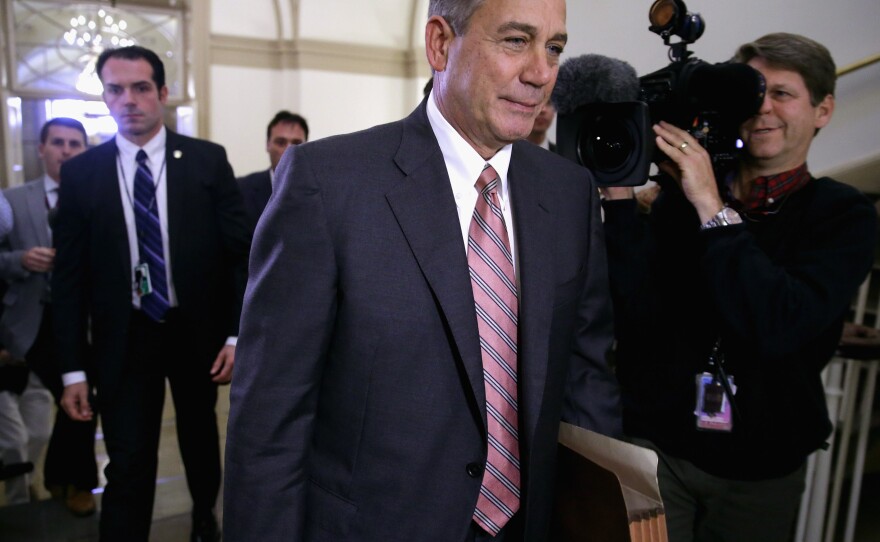The partial government shutdown begins its third week on Tuesday as the debt ceiling deadline looms just two days from now. Congressional leaders seem to be inching toward a deal that could prove acceptable to both sides and the White House. But, we've been here before.
USAToday describes the broad outlines of the emerging deal:
"A flurry of negotiations occurred throughout [Monday] as [Sen. Majority Leader Harry] Reid and his Republican counterpart, Senate Minority Leader Mitch McConnell of Kentucky, engaged with each other, their own members, House Speaker John Boehner, R-Ohio, and White House staff on the terms of a deal to end the budget impasse, which has kept the government partially shut down since Oct. 1.
McConnell said Monday morning, 'I share his optimism that we will get a result that is acceptable to both sides.'
The draft proposal still under negotiation would approve a stopgap funding bill to reopen government through Jan. 15; suspend the debt ceiling until Feb. 7; and create the framework for formal budget negotiations to conclude by Dec. 15 with long-term recommendations for funding levels and deficit reduction."
"In the meantime, policymakers would launch a new round of talks over broader budget issues in hopes of developing a plan to replace deep automatic spending cuts known as the sequester before Jan. 15. That is when the next round of sequester cuts is scheduled to slice another $20 billion out of agency budgets, primarily from the Pentagon.
The framework under consideration includes only minor changes to President Obama's signature health-care law, falling well short of defunding it or delaying major provisions as conservative Republicans initially sought. Instead, Republicans would get only new safeguards to ensure that people who receive federal subsidies to purchase health insurance under the law are eligible to receive them.
But talks were hung up over another provision, aides and lawmakers said: a demand by Democrats to delay the law's 'belly button tax,' a levy on existing policies that is set to add $63 per covered person -- including spouses and dependents -- to the cost of health insurance next year. Republicans derided the proposal as a special favor to organized labor."
"A potential filibuster could prolong the debate. But experts have said the promise of a deal could calm the restless financial markets. Sen. Ted Cruz (R-Texas), who spearheaded the drive to kill or delay Obama's healthcare law using the government-funding bill, held out the possibility that he would filibuster, but said, "I want to wait to see what the details are."
And, as NPR's Alisa Chang reports, whatever the deal, even if it passes the Senate, it's - not surprisingly -- going to be a hard sell to House Republicans. She reports:
"[For] the stalwart Republicans who have been determined to cripple the healthcare law, the Senate deal won't do enough devastation to Obamacare. The proposal will likely require tighter income verification for people who get healthcare subsidies, but Tim Huelskamp of Kansas says that's nowhere near adequate.
Huelskamp: 'When you're given 98, 99 percent of Obamacare, I don't see how that would ever pass over here, if it even passes the Senate.'
And as the days rapidly melt away before a debt ceiling breach, John Fleming of Louisiana says House Republicans are not feeling the time pressure.
Fleming: 'I don't think it has anything to do with it for the vast majority of Republicans. As you can see, we're down, how long, two weeks now into this? And we're working to re-open government as quickly as we can, but you know, for us, it's important to get government right.'"






